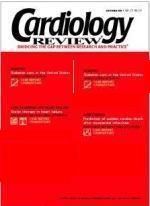Assessing the role of statins in heart failure
HMG-CoA reductase inhibitors (statins) are well established for the treatment and prevention of vascular disease. A recent revision of the National Cholesterol Education Program “up-titrated” treatment goals, reflecting the growing evidence favoring more aggressive dosing and low-density lipoprotein (LDL) lowering. In general, statins are broadly applied to patients with vascular disease (coronary, carotid, peripheral) or those at risk for vascular disease (diabetic and hypertensive patients). The pleiotropic effects of statins (ie, to lower inflammation as measured by high-sensitivity C-reactive protein levels) are well recognized, but of unclear significance. Because the ability of statins to lower events is now fairly clearly related to LDL lowering, however, it is surprising that the article by Horwich and Fonarow (page 23) suggests that these drugs may modify left ventricular function and the heart failure syndrome itself, even favorably affecting survival, especially in patients with valvular, idiopathic, and noncoronary etiologies of heart failure.
The authors briefly cite a wealth of basic and preclinical data that offer possible mechanisms for the effects of statins on heart failure and its manifestations. Their study and other similar retrospective reviews of heart failure populations seem to be consistent in suggesting benefit. These perspectives are inherently limited by their retrospective nature, however, a consideration that is especially important in the heart failure population. This is because serum cholesterol levels strongly influence physicians to prescribe statins, and patients with more clinically advanced heart failure, with worse nutritional states and more advanced cachexia, are likely to have lower cholesterol levels. Thus, they are less likely to be receiving statin treatment. Therefore, particularly in heart failure patients, not taking a statin may be a powerful marker of a “worse” syndrome and, hence, poorer survival. Multivariate analysis and propensity scores, at best, are weak modifiers of the current study’s findings, since heart failure severity has always been somewhat mysterious and not closely related to measured variables, such as ejection fraction and extent of coronary disease.
Conclusion
Statins remain strongly indicated in any heart failure patient with vascular disease and probably in patients with diabetes or hypertension as well. However, there is now a large collection of effective medical therapies (angiotensin-converting enzyme inhibitors, angiotensin receptor blockers, beta blocking agents, aldosterone inhibitors, and, of course, diuretics and digoxin) and devices (biventricular pacing defibrillators) to “comply” with before our efforts should be directed to starting statin treatment in patients with nonischemic cardiomyopathy.
